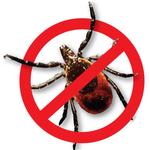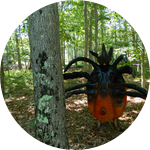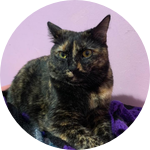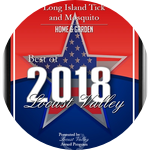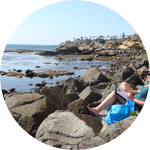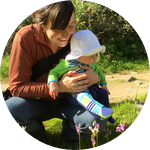About This Project
Despite widespread education about ticks, tickborne disease cases are increasing. TickSpotters, the nation's most established crowdsourced digital surveillance program, tracks tick trends and provides tailored risk and prevention information to the public. Using TickSpotters crowdsourced data, we hypothesize that individualized engagement and personalized public health messages tailored to a person's specific tick encounter will increase adoption of best prevention practices.
Ask the Scientists
Join The DiscussionWhat is the context of this research?
Tickborne disease incidence is growing and without affordable or acceptable large-scale management techniques or vaccines, research to improve prevention practices is needed. As of 2014, blacklegged ticks, the vector for Lyme disease and many other pathogens, are in roughly 50% of counties across 43 states. There are approximately 300,000 new cases of Lyme each year, and health economists estimate that the current cost to the U.S. healthcare system alone is between $712 million and $1.3 billion annually. Making matters worse and health costs even higher is the increasing incidence of other tickborne illnesses like babesiosis, anaplasmosis, ehrlichiosis, Rocky Mountain Spotted Fever, and encephalitic viruses which appear to be increasing as their tick vector ranges expand.
What is the significance of this project?
Citizen science-based tick surveillance is a validated and widely-employed tool to estimate and observe changes in tick abundances, disease prevalence, and habitat range. Institutions using these programs are now examining these data to assess behavior and factors related to tick encounters, like where embedded ticks are found on the body, or victim age. However, systems that collect physical tick specimens lack the ability to provide tailored rapid-feedback education regarding tick encounters. From tracking tick encounter trends to detecting and monitoring new tick invasions, TickSpotters’ “power-of-the-crowd” digital photo approach offers a groundbreaking method of collecting valuable entomological data while providing a critical prevention education service.
What are the goals of the project?
Project outputs include web integration of a new photo-based surveillance platform to streamline submissions and reporting, accommodate increased user volume, and facilitate development of real-time tick maps and user-friendly data dashboards to display seasonal tick activity and distribution. We will train volunteer TickExperts to provide templated tailored response emails that estimate risk of disease based on tick species and feeding time, and provide best next steps and tick-bite prevention education. We will survey users to determine whether this citizen-science engagement improves tickborne disease knowledge and prevention behaviors. Responses will be compared to submission data to evaluate correlations among geography, season, tick species, and human demographics like age and sex.
Budget
We seek to upgrade our current surveillance system to a cloud-based customer relationship management (CRM) platform, to better handle the increasing public usage of this program (currently ~12,000 submissions/year), improve the quality of real-time tick risk information, enhance data management and analysis capabilities, and to reach a broader audience with customized tickborne disease prevention guidance. Currently, our data collection form is separate from the response process and storage, which creates difficulty in visualizing our data quickly as they require manual data cleaning steps. We also need more help. To overcome these difficulties, we're building a Salesforce CRM to centralize and streamline our data intake, communication, and workflow. We will validate our photo ID accuracy by randomly sampling ticks [mailers] from participants to ensure quality control. We will also implement a training program for volunteer TickExperts to help respond to increasing volumes [training].
Endorsed by
 Project Timeline
Project Timeline
We anticipate completing the research aims of this project within the year.
Apr 15, 2019
Implement new photo-based tick surveillance system and begin engaging the public with updated customized responses.
Apr 29, 2019
Project Launched
Jun 03, 2019
Complete and implement TickExpert training curricula. We seek to enroll and train interns at a minimum of 4 outside institutions to assist with tick IDs and responses.
Jun 30, 2019
Disseminate IRB-approved electronic knowledge, behavior, and attitudes survey to TickSpotters users and control group (Master Gardeners who have not used TickSpotters).
Sep 01, 2019
Implement real-time TickSpotters data dashboards on TickEncounter web site.
Meet the Team
Affiliates
Affiliates
Team Bio
The TickEncounter Resource Center promotes tick-bite protection and tick-borne disease prevention by engaging, educating, and empowering people to take action.
Thomas Mather
I am a public health entomologist with over 35 years of research and outreach experiences focused on solving America's tick problem.
Heather Kopsco
I am a PhD candidate in ecology at the University of Rhode Island, where I work on communication theory-based tick-borne disease prevention programs, including conducting an evaluation of the first digital crowd-sourced tick surveillance program, TickSpotters. I work with the Center for Vector-borne Disease on a variety of public outreach projects, as as well assisting with field work.
I earned my masters at Montclair State University where I researched the role New Jersey birds (resident and migratory) play in the enzootic cycle of Lyme disease.
My interests include vector-borne/zoonotic disease ecology, science communication, and applying a One Health approach to mitigating disease transmission and outbreaks.
Roland J Duhaime
I received my M.S. in Landscape Ecology from URI ('94) and have been working with the Center for Vector-Borne Disease since 2007, assisting with all of the risk mapping, modeling and geo-referencing of data. I bring over 26 years' of managing and manipulating spatial data for URI's Environmental Data Center, especially working on projects for northeastern National Parks. I also interact with regional and national GIS leadership for the National Park Service. In addition, I have shown the vast potential of the URI TickSpotters platform for informing decision makers about the spatial distribution of tick activity in North America.
Steven Engborg
I am a research assistant and educator at URI's Center for Vector-Borne Disease. Currently I serve as the the project manager for the Backyard Integrated Tick Management Study (BITM), a CDC-funded study to assess the effectiveness of varying integrated tick management systems in residential settings. I am interested in public outreach and community education about tick-borne disease. Prior to joining the team I worked at Louisiana State University evaluating the health of the Mississippi Delta marsh following the Deepwater Horizon oil spill. In addition to my bachelor’s degree in biology, I have an M.S. in science education. I have classroom experience educating students of all ages, from elementary school to university undergraduate.
Project Backers
- 102Backers
- 107%Funded
- $8,631Total Donations
- $84.62Average Donation







